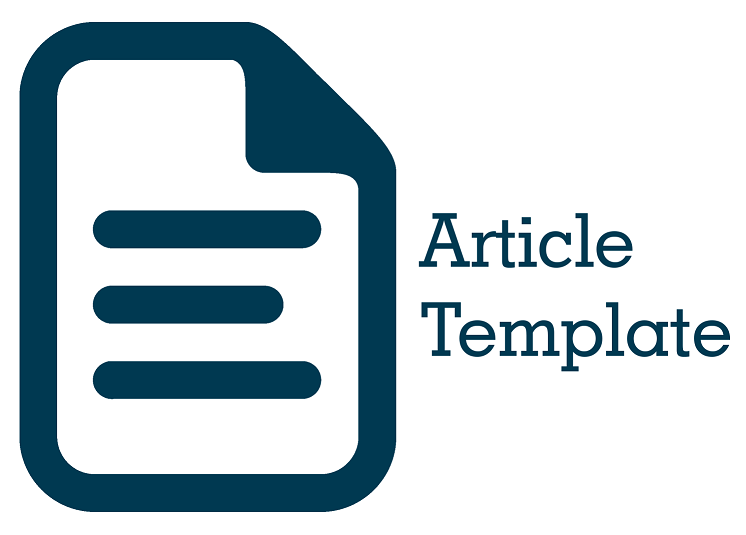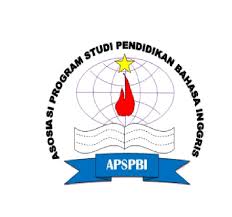Why Does Academic Enjoyment Affect Foreign Language Proficiency? The Mediating Role of Elaboration Strategies
DOI:
https://doi.org/10.22515/elereviews.v3i1.6421Keywords:
elaboration strategies, FL enjoyment, FL proficiency, mediating mechanismAbstract
From the perspective of positive psychology, academic enjoyment, a positive achievement emotion, positively impacts school outcomes. However, studies have yet to explore the mediating mechanism between academic enjoyment and achievement. This research investigated the direct and indirect effects of academic enjoyment on foreign language (FL) proficiency. Specifically, this study endeavored to test the role of FL enjoyment on FL elaboration strategies and whether FL elaboration strategies, in turn, affects FL proficiency. Data were collected from 505 Chinese secondary school students aged 12 to 15 using convenience sampling. Structural equation modeling (SEM) and mediation analyses found that FL elaboration strategies partially mediated the relationship between FL enjoyment and FL proficiency. Implications, shortcomings, and directions for further studies are also discussed.
Downloads
References
An, Z., Wang, C., Li, S., Gan, Z., & Li, H. (2021). Technology-assisted self-regulated English language learning: Associations with English language self-efficacy, English enjoyment, and learning outcomes. Frontiers in Psychology, 11, 558466. https://doi.org/10.3389/fpsyg.2020.558466
Artino, A. R., & Jones, K. D. (2012). Exploring the complex relations between achievement emotions and self-regulated learning behaviors in online learning. Internet and Higher Education, 15(3), 170–175. https://doi.org/10.1016/j.iheduc.2012.01.006
Boliver, V., & Capsada-Munsech, Q. (2021). Does ability grouping affect UK primary school pupils’ enjoyment of Maths and English? Research in Social Stratification and Mobility, 76, 100629. https://doi.org/10.1016/j.rssm.2021.100629
Camacho-Morles, J., Slemp, G. R., Pekrun, R., Loderer, K., Hou, H., & Oades, L. G. (2021). Activity achievement emotions and academic performance: A meta-analysis. Educational Psychology Review, 33(3), 1051–1095. https://doi.org/10.1007/s10648-020-09585-3
Chen, F. F. (2007). Sensitivity of goodness of fit indexes to lack of measurement invariance. Structural Equation Modeling: A Multidisciplinary Journal, 14(3), 464–504. https://doi.org/10.1080/10705510701301834
Chen, M.-L. (2014). Age differences in the use of language learning strategies. English Language Teaching, 7(2), 144–151. https://doi.org/10.5539/elt.v7n2p144
Chyung, S. Y. (2007). Age and gender differences in online behavior, self-efficacy, and academic performance. The Quarterly Review of Distance Education, 8(3), 213–222.
Dewaele, J.-M., MacIntyre, P. D., Boudreau, C., & Dewaele, L. (2016). Do girls have all the fun? Anxiety and enjoyment in the foreign language classroom. Theory and Practice of Second Language Acquisition, 2(1), 41–63.
Dowson, M., & McInerney, D. M. (2004). The development and validation of the goal orientation and learning strategies survey (GOALS-S). Educational and Psychological Measurement, 64(2), 290–310. https://doi.org/10.1177/0013164403251335
Efron, B. (1988). Bootstrap confidence intervals: Good or bad? Psychological Bulletin, 104(2), 293–296. https://doi.org/10.1016/0167-7152(88)90042-9
Garavan, T., & O’Brien, F. (2011). Elaboration strategies and human resources development. In N. M. Seel (Ed.), Encyclopedia of the sciences of learning (pp. 1105–1108). Springer.
Gentry, M., Gable, R. K., & Rizza, M. G. (2002). Students’ perceptions of classroom activities: Are there grade-level and gender differences? Journal of Educational Psychology, 94(3), 539–544. https://doi.org/10.1037/0022-0663.94.3.539
Geurten, M., Meulemans, T., & Lemaire, P. (2018). From domain-specific to domain-general? The developmental path of metacognition for strategy selection. Cognitive Development, 48, 62–81. https://doi.org/10.1016/j.cogdev.2018.08.002
Goetz, T., Frenzel, A. C., Pekrun, R., & Hall, N. C. (2006). The domain specificity of academic emotional experiences. Journal of Experimental Education, 75(1), 5–29. https://doi.org/10.3200/JEXE.75.1.5-29
Goetz, T., Frenzel, A. C., Pekrun, R., Hall, N. C., & Lüdtke, O. (2007). Between and within-domain relations of students’ academic emotions. Journal of Educational Psychology, 99(4), 715–733. https://doi.org/10.1037/0022-0663.99.4.715
Kahneman, D. (1973). Attention and effort. Prentice Hall.
Kang, X., & Wu, Y. (2022). Academic enjoyment, behavioral engagement, self-concept, organizational strategy and achievement in EFL setting: A multiple mediation analysis. PLoS ONE, 17(4), e0267405. https://doi.org/10.1371/journal.pone.0267405
King, R. B., & Areepattamannil, S. (2014). What students feel in school influences the strategies they use for learning: Academic emotions and cognitive/meta-cognitive strategies. Journal of Pacific Rim Psychology, 8(1), 18–27. https://doi.org/10.1017/prp.2014.3
Lin, W., Yin, H., Han, J., & Han, J. (2020). Teacher-student interaction and Chinese students’ mathematics learning outcomes: The mediation of mathematics achievement emotions. International Journal of Environmental Research and Public Health, 17(13), 1–17. https://doi.org/10.3390/ijerph17134742
MacIntyre, P., & Gregersen, T. (2012). Affect: The role of language anxiety and other emotions in language learning. In S. Mercer, S. Ryan, & M. Williams (Eds.), Psychology for language learning: Insights from research, theory and practice (pp. 103–118). Palgrave Macmillan.
Muthén, L. K., & Muthén, B. (2013). Mplus version 8.3: User’s guide. Muthén & Muthén.
Obergriesser, S., & Stoeger, H. (2020). Students’emotions of enjoyment and boredom and their use of cognitive learning strategies-How do they affect one another? Learning and Instruction, 66, 101285. https://doi.org/10.1016/j.learninstruc.2019.101285
Pekrun, R. (2006). The control-value theory of achievement emotions: Assumptions, corollaries, and implications for educational research and practice. Educational Psychology Review, 18(4), 315–341. https://doi.org/10.1007/s10648-006-9029-9
Pekrun, R., Goetz, T., Frenzel, A. C., Barchfeld, P., & Perry, R. P. (2011). Measuring emotions in students’ learning and performance: The Achievement Emotions Questionnaire (AEQ). Contemporary Educational Psychology, 36(1), 36–48. https://doi.org/10.1016/j.cedpsych.2010.10.002
Pekrun, R., Goetz, T., Titz, W., & Perry, R. P. (2002). Academic emotions in students’ self-regulated learning and achievement: A program of qualitative and quantitative research. Educational Psychologist, 37(2), 91–105. https://doi.org/10.1207/S15326985EP3702_4
Pekrun, R., Hall, N. C., Goetz, T., & Perry, R. P. (2014). Boredom and academic achievement: Testing a model of reciprocal causation. Journal of Educational Psychology, 106(3), 696–710. https://doi.org/10.1037/a0036006
Pekrun, R., Marsh, H. W., Elliot, A. J., Stockinger, K., Perry, R. P., Vogl, E., Goetz, T., Tilburg, W. A. P. Van, Oliver, L., & Vispoel, W. P. (2023). A three-dimensional taxonomy of achievement emotions. Journal of Personality and Social Psychology, 124(1), 145–178. https://doi.org/10.1037/pspp0000448
Podsakoff, P. M., MacKenzie, S. B., Lee, J. Y., & Podsakoff, N. P. (2003). Common method biases in behavioral research: A critical review of the literature and recommended remedies. Journal of Applied Psychology, 88(5), 879–903. https://doi.org/10.1037/0021-9010.88.5.879
Priawasana, E., Degeng, I. N. S., Utaya, S., & Kuswandi, D. (2020). An experimental analysis on the impact of elaboration learning on learning achievement and critical thinking. Universal Journal of Educational Research, 8(7), 3274–3279. https://doi.org/10.13189/ujer.2020.080757
Putwain, D. W., Wood, P., & Pekrun, R. (2022). Achievement emotions and academic achievement: Reciprocal relations and the moderating influence on academic buoyancy. Journal of Educational Psychology, 114(1), 108–126. https://doi.org/10.1037/edu0000637
Rivkin, S. G., & Schiman, J. C. (2015). Instruction time, classroom quality, and academic achievement. Economic Journal, 125(588), F425–F448. https://doi.org/10.1111/ecoj.12315
Roever, C., & Phakiti, A. (2017). Quantitative methods for second language research: A problem-solving approach. Routledge.
Seligman, M. E. P., & Csikszentmihalyi, M. (2000). Positive psychology: An introduction. American Psychologist, 55(1), 5–14. https://doi.org/10.1037/0003-066X.55.1.5
Shao, K., Pekrun, R., Marsh, H. W., & Loderer, K. (2020). Control-value appraisals, achievement emotions, and foreign language performance: A latent interaction analysis. Learning and Instruction, 69, 101356. https://doi.org/10.1016/j.learninstruc.2020.101356
Tempelaar, D. T., Niculescu, A., Rienties, B., Gijselaers, W. H., & Giesbers, B. (2012). How achievement emotions impact students’ decisions for online learning, and what precedes those emotions? Internet and Higher Education, 15(3), 161–169. https://doi.org/10.1016/j.iheduc.2011.10.003
Tsang, A., & Dewaele, J. M. (2023). The relationships between young FL learners’ classroom emotions (anxiety, boredom, & enjoyment), engagement, and FL proficiency. Applied Linguistics Review, Advance online publication. https://doi.org/10.1515/applirev-2022-0077
Van Den Noort, M. W. M. L., Bosch, P., & Hugdahl, K. (2006). Foreign language proficiency and working memory capacity. European Psychologist, 11(4), 289–296. https://doi.org/10.1027/1016-9040.11.4.289
Viriya, C., & Sapsirin, S. (2014). Gender differences in language learning style and language learning strategies. Indonesian Journal of Applied Linguistics, 3(2), 77–88. https://doi.org/10.17509/ijal.v3i2.270
Wang, X. (2022). Enhancing Chinese EFL students’ academic engagement: The impact of L2 enjoyment and academic motivation. Frontiers in Psychology, 13, 914682. https://doi.org/10.3389/fpsyg.2022.914682
Willoughby, T., Porter, L., Belsito, L., & Yearsley, T. (1999). Use of elaboration strategies by students in grades two, four, and six. Elementary School Journal, 99(3), 220–231. https://doi.org/10.1086/461924
Wolters, C. A. (1998). Self-regulated learning and college students’ regulation of motivation. Journal of Educational Psychology, 90(2), 224–235. https://doi.org/10.1037/0022-0663.90.2.224
Wolters, C. A. (2003). Understanding procrastination from a self-regulated learning perspective. Journal of Educational Psychology, 95(1), 179–187. https://doi.org/10.1037/0022-0663.95.1.179
Wood, E., & Willoughby, T. (1993). Effectiveness of elaboration strategies for grade school children as a function of academic achievement. Journal of Experimental Child Psychology, 56, 240–253. https://doi.org/10.1006/jecp.1993.1033
Wu, Y., & Kang, X. (2023). Relationship between perceived teacher support and learning engagement in EFL context: The mediating role of achievement emotions. International Journal of Education and Humanities, 3(1), 85–98. https://doi.org/10.58557/(ijeh).v3i1.141
Wu, Z. (2017). Academic motivation, engagement, and achievement among college students. College Student Journal, 53(1), 99–112.
Yang, M. (2015). Trapped in politicization of ethnicity: The dilemma in China’s ethnic minority education. Chinese Education & Society, 48(5), 327–331. https://doi.org/10.1080/10611932.2016.1171115
Zhang, H., Dai, Y., & Wang, Y. (2020). Motivation and second foreign language proficiency: The mediating role of foreign language enjoyment. Sustainability, 12(4), 1–13. https://doi.org/10.3390/su12041302
Downloads
Published
How to Cite
Issue
Section
Citation Check
License
Copyright (c) 2023 Yajun Wu, Xia Kang

This work is licensed under a Creative Commons Attribution-NonCommercial 4.0 International License.
Authors retain copyright and grant the journal right of first publication with the work simultaneously licensed under a Creative Commons Attribution License that allows others to share the work with an acknowledgement of the work's authorship and initial publication in this journal.
This ejournal system and its contents are licensed under
a Creative Commons Attribution-NonCommercial 4.0 International License








